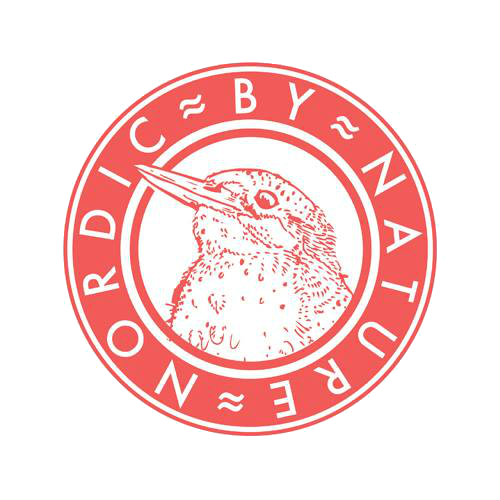If you are a fan of Scandinavian electronic pop, Soleima (aka Sarah Mariegaard) should not have escaped your attention. Ever since her debut single “My Boi” in 2015, the young Danish singer has been hailed by the critics as Denmark’s next MØ. Following the mini-EP “No. 14”, Soleima’s latest release “Paper” is an enticing and groovy banger. Yet all these catchy, sleek tunes only reveal one side of Soleima. Anthropologist by education, she has participated in dance camps in Africa, done charity work, co-organized cultural exchange projects, and even produced her own documentary about migration in Senegal. How do these experiences merge into her music? Is there a place for political and societal messages in Soleima’s songs - and pop music more generally? We talked to Soleima to find out answers to these and other questions.
Soleima’s music might not be political in the traditional sense of this word. However, in the age of general societal apathy and close-mindedness, the infectious energy and curiosity inherent to both Soleima’s personality and her sound might be just the right wake-up call.
NBN: You have a rather unusual background: degree in anthropology, charity work, your own documentary about migration…Is music for you a kind of a getaway from those politically and socially charged activities? Or is it just a different medium to continue with essentially the same (or similar) work?
To me it is both the same and still different. Global awareness is extremely important to me, and I think every human should feel obligated to have some sort of idea about the world we are living in and the complexity of it. So obviously this is a part of me and will unavoidable effect the things I do in life. Yet I think that one of the important things about art is that it is able to be unpolitical as well. Or said in another way, to be indirectly political. Indeed, art should not require a cause to be justified, in my view. That is exactly the power of it. In that way I feel like it continues what I have been doing before because I am who I am, and not because I feel like I HAVE to make political music.
NBN: What made you study anthropology to begin with? Does this academic background inform your songwriting in any way?
I lived with a dance group in Mwanza, Tanzania, for a long time. After I had lived there, a friend and I invited the dance group to Denmark to teach and perform. These projects made me wanna work with cultural exchange in some way or the other.
NBN: Would you say that your music has a political dimension - maybe indirectly? What kind of message(s) are you trying to convey through music?
Indirectly, yes. What has interested me a lot on my first EP, and in general when writing this last year, is escapism. I think that is something many people are thinking about and dealing with these days. In a world there seems to be falling apart in many ways, this is something very appealing, yet also very forbidden and cowardly to me. The ambiguity in this, I guess you could call political. But it is never direct, which is important to me.
NBN: In general, what do you think of mixing art and politics? Should pop musicians get involved in political issues? Or do they have a different mission altogether?
As mentioned before, I think all humans have an obligation to have some sort of political and global awareness. Be aware of the different power structures in the world, our own positions in it and so on. I don’t think art necessarily should be directly political. But I often find that good art is political. Indeed, I think that if we are able to decode it in the right way, much of pop music is actually political in a very subtle way. The power of art is often that it doesn’t have to be theological or scientific, neither does it have to be political - yet it often is.
NBN: You have lived outside of Europe in Africa and Asia for a while. How has that impacted you personally and professionally as a musician? Would you say it made you more aware of your own roots and heritage? Did it make you feel more “European” - or vice versa, more like a global citizen of the world?
First of all, living outside of Europe has made me understand how extremely lucky I am to be able to fulfil myself and my dreams. It is such a rare thing in this world to be able to do what you actually wanna do, and I am lucky to be able to do that. I feel like a global citizen and very much wanna identify myself with people all over the world. I think we are living in a postcolonial world, with a very critical understanding of division of resources. Borders to me is a critical thing. I know it is an extreme thing to say, and when discussing this people will always ask for an alternative world order, a solution of some sort. I don’t have that, but just to address this topic is important in my view.
NBN: Are you familiar with the contemporary music scene in Africa? Any tips or insights that you’d like to share?
The classics are Armadou & Mariam and P-square I guys. Both very good! But I have actually listened mostly to aquatic drums and singing. A style called bunungule. I have attached a rough piece here, from when the dance group Bung’hya Wangoko was in Denmark.
NBN: From your personal experience, what is it like to be a woman in the music industry today? What are some of the main challenges that you have observed or experienced?
I always feel very strange when asked this question. I of course think that we should be very aware of the gender inequalities in our world. But I also think that by asking this question this obvious, we make the differences seem more real than they actually are. You would never ask a male artist, ‘so how is it to be a man in the music industry’. In that way, I think we should be very careful about how we use the language, as it has power to create inequality in itself.
NBN: What are some of the female figures that you look up to?
Right now I am very inspired by this artist called Princess Nokia. I think her way of playing around with our classical and old-school perceptions of femininity and masculinity is very cool and inspiring.
Soleima has been playing a lot of concerts these last months but for the rest of the year studio work is planned. She told us: “Now it is time to go back to the studio and write, which is gonna be so nice. I am going to Stockholm and London next month to write and otherwise I will be in the studio in Copenhagen with my amazing producer Vasco. We still have to play a couple of concerts this fall, but mostly it will be studio work and then in the spring we are gonna play concerts around Europe starting with Eurosonic in January.”



Leave a reply